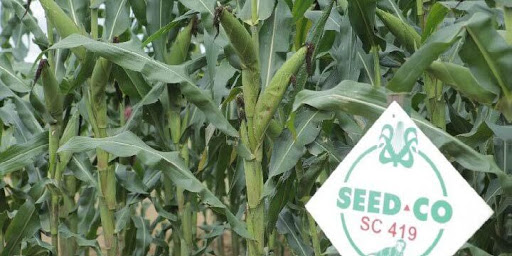Rates disparity puts Seed Co margins under pressure
SEED Co Limited says the disparity between the official and parallel exchange rates has exerted significant stress on the seed breeding group’s profit margins and the viability of the company’s business model.
Group chairman, David Long said in a statement of financials for the half year period ended 30 September 2021, that while the company was alive to the structural challenges, there was little headroom to invoke strategies to mitigate the adverse impact of these challenges.
“The significant disparity between the official exchange rate which is the benchmark of the company’s selling prices and the parallel exchange rate which is the benchmark of most of the company’s operating costs, including the cost of raw seed from growers, has put significant stress on margins and business model viability.
“This mismatch is now further compounded by the increase in finance costs following the policy rate hike from 40 percent to 60 percent by the Reserve Bank of Zimbabwe announced on 28 October 2021,” he said.
Mr Long added that whilst the board and management were alive to the structural challenges, there is little headroom to invoke strategies to mitigate the adverse impact of these largely exogenous economic headwinds.
“Nevertheless, the company continues striving to preserve the balance sheet, through among other things, tangible capital expenditure and price adjustments to the extent possible, in anticipation of an improvement in the operating environment,” he noted. The group noted that despite the foregoing adverse conditions, the economy is still earmarked to grow by at least five percent in 2021 buttressed by the agricultural sector which bodes well for the group’s operations.
During the period under review, revenue grew 43 percent to $2,1 billion compared to $1,4 billion during the same period prior year, buoyed by strong demand for winter cereals and early maize seed sales.
However, gross margin dropped because of a huge increase in the cost of raw seed driven by the depreciating local currency.
“Operating expenses rose on the back of inflationary pressures and resumption of some activities which had been suspended last year due to Covid-19 containment measures.
“Net finance costs surged owing to the high interest rate environment further compounded by the rising debt levels while the group’s average rate of borrowing is 41 percent,” Mr Long said.
He said the group’s non-current assets for the period went up mainly because of the capital expenditure incurred to complete the installation of the artificial seed dryer which was commissioned in September 2021.
“Furthermore, the investment in the foreign associate increased due to foreign currency gains on translation,” Mr Long said.
He noted that accounts receivables mainly arose from winter cereals sales most of which were settled after the reporting date, and indicated that the business will target to do summer sales on a cash basis to preserve value.
“Increase in borrowings was due to delayed receipts from debtors and the increase in seed purchase costs. The group is aiming to use inflows from the main summer selling season to substantially reduce borrowings by year end,” Mr Long said.
He highlighted that on seed supply, the group’s field seed stock quantities delivered by growers were negatively affected by unfavourable weather at the tail end of the production season.
“In addition, most vegetable seed’s supply chain was disrupted by Covid-19 related logistical constraints. In-spite of these challenges, the group has sufficient stock to satisfy projected demand,” he said.
On research and development, Long said Scientists’ effort to develop a solution to fall army worm tolerant germplasm continues unabated.
He said progress is being made on breeding of new sugar and soya bean varieties and the molecular laboratory is now being fully utilised in assisting in breeding efforts.-The Herald










